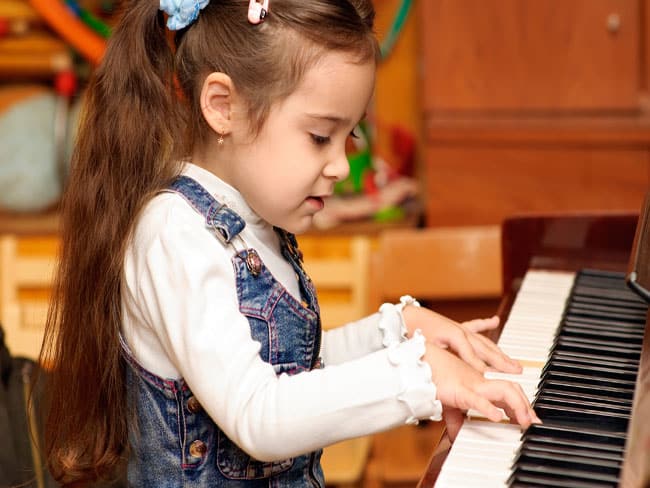Studies have shown that allowing your child, even at a young age, to pick up the guitar, practice the piano, or even take singing lessons, can be a boon for their development in some surprising ways. In addition to brain development, vocabulary, reasoning, general intelligence, and social and emotional development all correlate with musical study.
Brain Development
The human brain is highly elastic, responding to the way it is used and its environment and stimuli by changing the way it is structured and the way it functions. Researchers have focused on the brain’s ability to develop more strongly in response to the study of a musical instrument. This study shows that, when groups of young children are divided into those who are training in a musical instrument and those who are not, the group who has long-term musical training demonstrates performance in key areas of brain development such as relevant auditory and fine motor skills. In fact, these changes are present after just 15 months of musical training.
Vocabulary, Reasoning, and Intelligence
There are some surprising, and more specific, effects that musical study has on the brain, as evidenced by two other studies. This study concludes that the brain can show improvements in both verbal skills and nonverbal reasoning in participants in the study who were practicing a musical instrument. In fact, the longer the participants studied a musical instrument, the stronger their skills were in these areas. Another study shows an effect on general intelligence after some time spent on musical training. When a group of participants had their IQ tested both before and after musical study, they showed improvements in IQ, signifying improvements in general intelligence. A second group of participants who did not train musically did not show this difference in IQ.
Socio-emotional Development
More nuanced and surprising is a study that shows the effects of musical training on social and emotional development. Apparently, there is a positive effect on social skills and emotional regulation among children who train with a musical instrument, but only if the musical practice is a positive and enjoyable activity for the child. Pressuring kids to excel at musical study may have less of a beneficial effect than allowing children to practice in a way that I enjoyable for them.
Is your child showing an interest in your family’s guitar or piano? Does he flock to the toys that allow him to express himself musically? It may be highly beneficial to allow him to pursue these interests!

